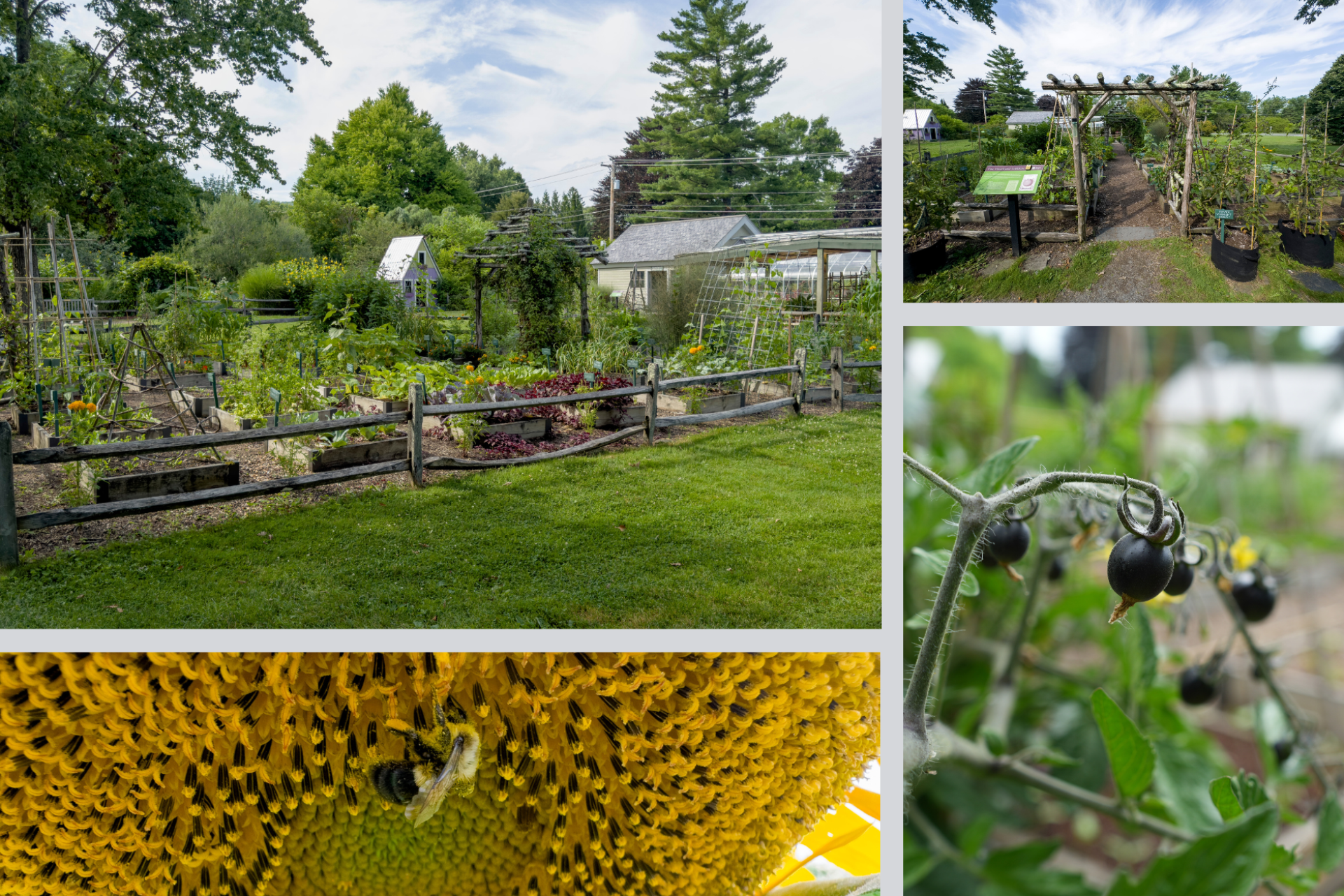You are here
Edible Gardens
Edible Gardens
The raised beds in these two plots are laid out in tidy grids, each highlighting one type of vegetable or fruit. Raised beds can be planted earlier in spring as their soil warms up faster than lower ground. This is a benefit in our short growing season. Designed by Jack Staub, 2009.
The plant varieties growing here were selected for their ornamental qualities as well as for their yield, flavor, and suitability to the climate of Western New England. Many are heirlooms, open-pollinated varieties preserved by generations of seed-savers. In the middle of the last century, many heirlooms were replaced in commercial production by hybrid varieties developed to better handle mechanical harvesting and shipping. But heirlooms are still grown and treasured for other qualities such as taste and form and are a superb choice for home gardeners.
What We Eat
Vegetables are a diverse group of plants selected by humankind over time to increase their suitability for both eating and cultivating. But we do not often stop and think about the different parts of plants we eat. Carrots and radishes are grown for their edible roots; potatoes for their storage tubers; lettuce, spinach, and kale for their edible leaves; celery for its edible stalks; and tomatoes, peppers, pumpkins and eggplants for their edible fruits. Some plants such as peas and beans may be grown for their edible fruits or pods, or grown on for their seeds which can be dried and stored for later consumption.
Did You Know?
Not all seeds are equal. Hybrid seeds, unlike open-pollinated heirloom varieties, will not produce seeds that are true to type. In contrast, if an open-pollinated variety is fertilized by the pollen of a plant of the same variety, it will produce seeds that resemble the parent plants. The variety of a plant is the name that is typically listed in sinale quotes along with its common name or species, such as 'Brandvwine' tomato (Lycopersicon esculentum 'Brandvwine').
Help Our Garden Grow!
Your donation helps us to educate and inspire visitors of all ages on the art and science of gardening and the preservation of our environment.
All donations are 100 percent tax deductible.


